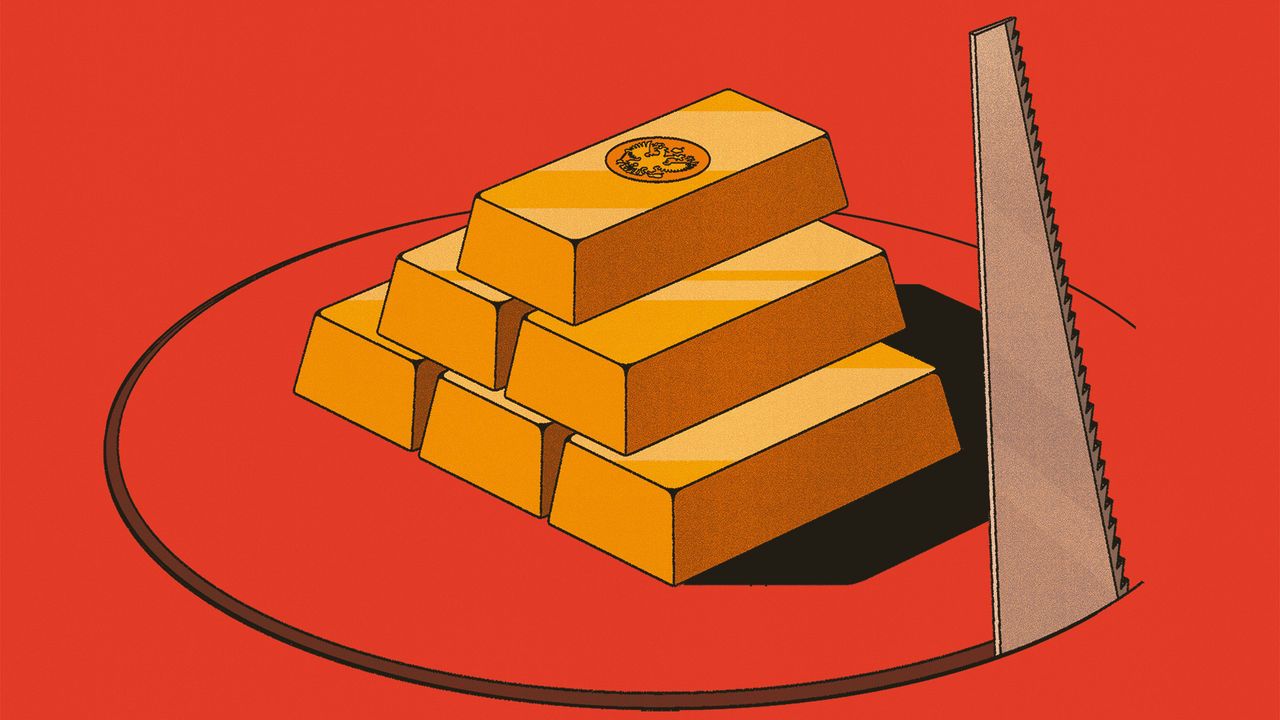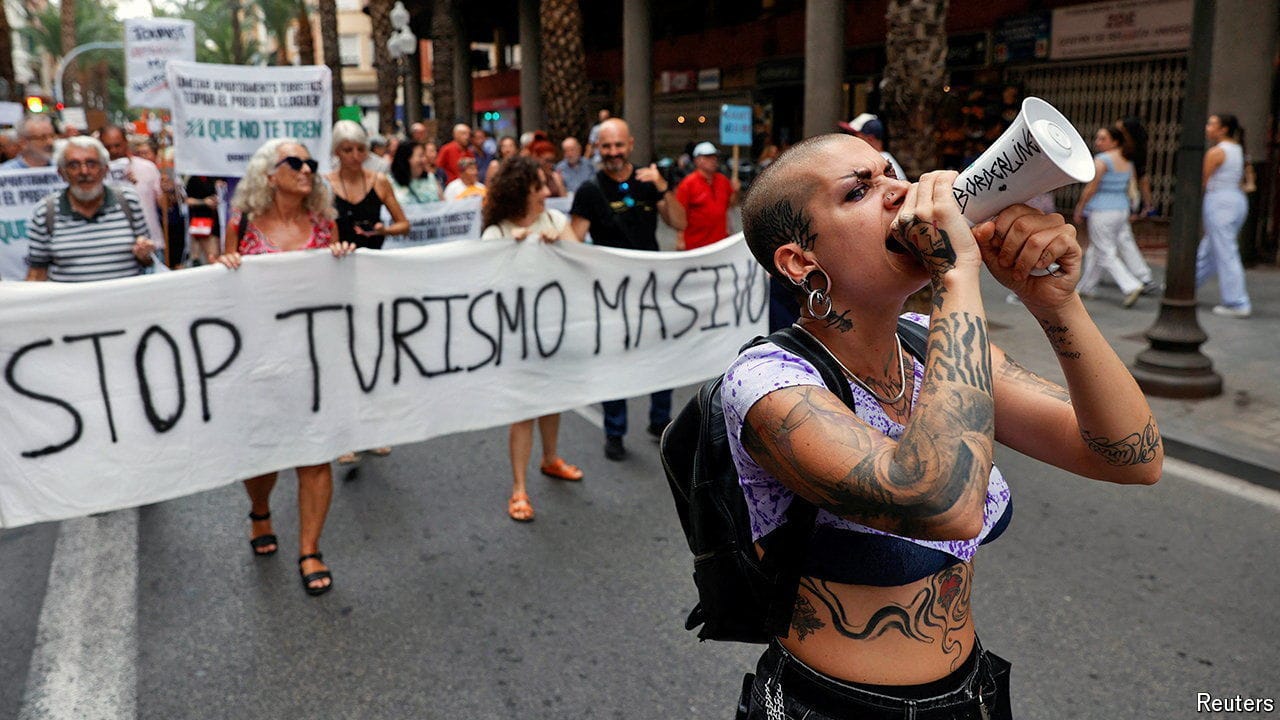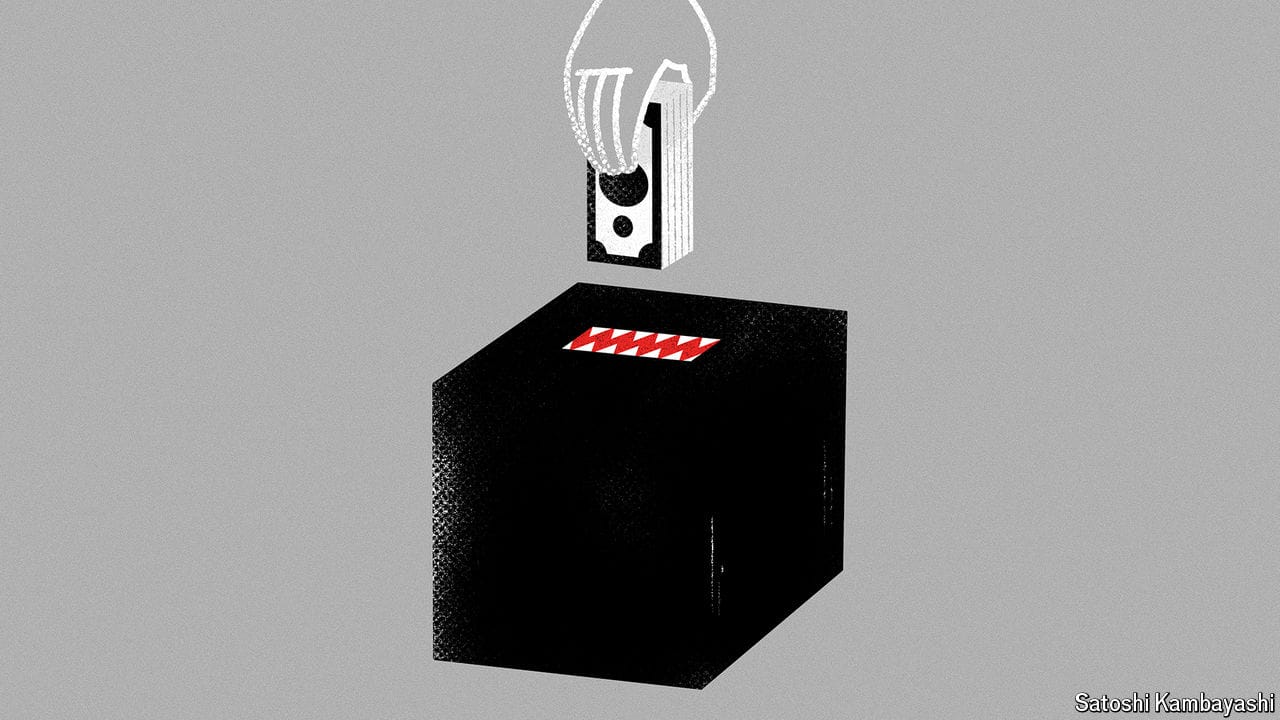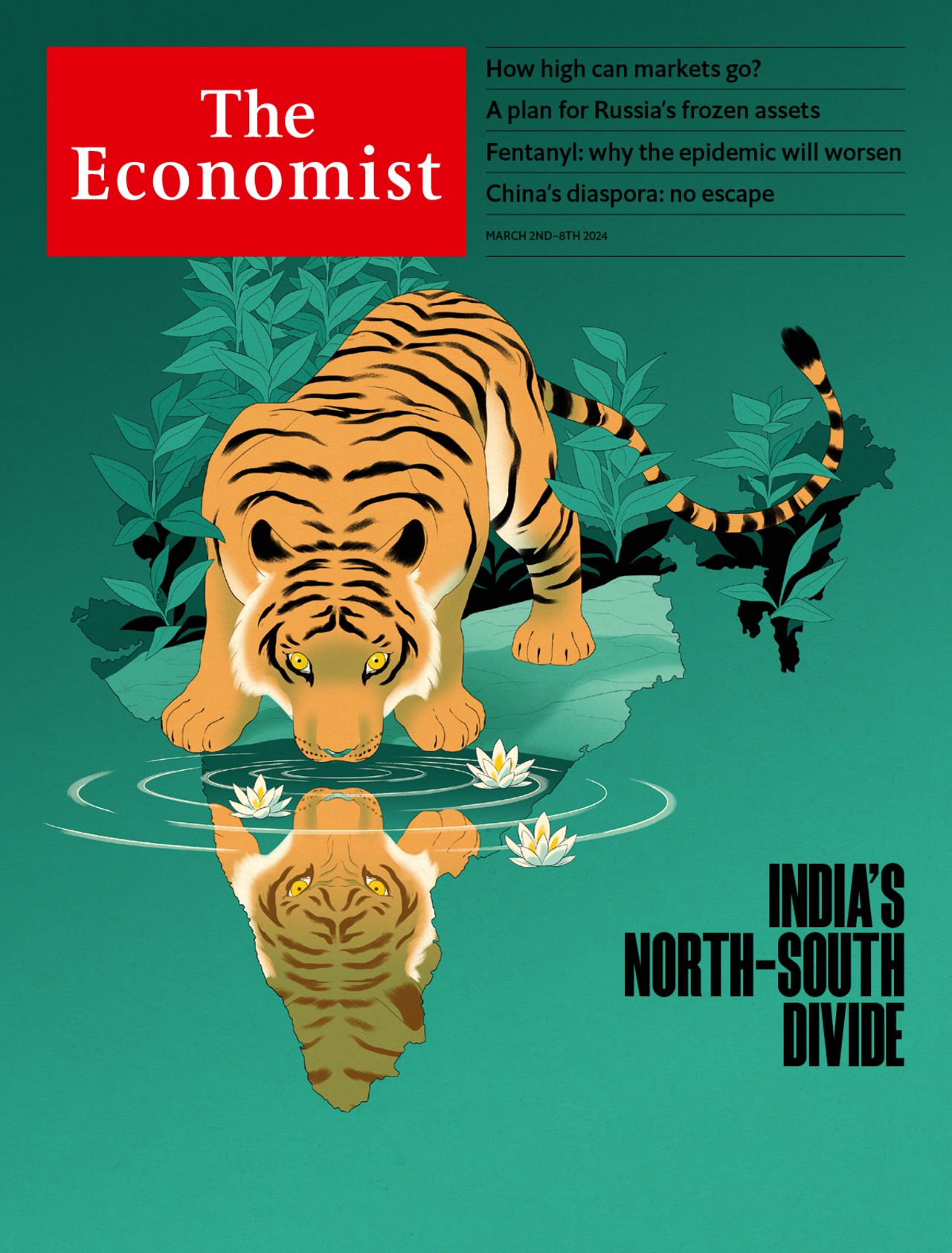What do you do with 191bn frozen euros owned by Russia?
The question that now confronts Western policymakers

In economic terms, an asset has value because an owner might derive future benefits from it. Some assets, like cryptocurrencies, require a collective belief in those benefits. Others, like wine, will undeniably provide future pleasure, such as the ability to savour a 1974 Château Margaux. Still others, like American Treasuries, represent a claim on the government of the strongest economy in the world, backed by a formidable legal system.
Explore more
This article appeared in the Finance & economics section of the print edition under the headline “Treasure hunters”
Finance & economics March 2nd 2024
- Activist investing is no longer the preserve of hedge-fund sharks
- How Trump and Biden have failed to cut ties with China
- Uranium prices are soaring. Investors should be careful
- Stockmarkets are booming. But the good times are unlikely to last
- What do you do with 191bn frozen euros owned by Russia?
- Are passive funds to blame for market mania?
More from Finance and economics

China’s last boomtowns show rapid growth is still possible
All it takes is for the state to work with the market

What the war on tourism gets wrong
Visitors are a boon, if managed wisely

Why investors are unwise to bet on elections
Turning a profit from political news is a lot harder than it looks
Revisiting the work of Donald Harris, father of Kamala
The combative Marxist economist focused on questions related to growth
Donald Trump wants a weaker dollar. What are his options?
All come with their own drawbacks
Why is Xi Jinping building secret commodity stockpiles?
Vast new holdings of grain, natural gas and oil suggest trouble ahead
